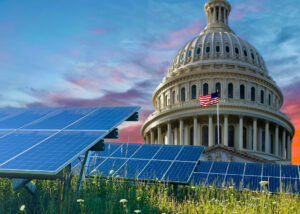
Foster Equity, Justice and Community Engagement
Investing in local communities and planning for a just transition toward a clean energy economy help companies prevent environmental injustices and ensure a fair and inclusive future for all stakeholders while creating a more stable and supportive environment for their business to operate in, which can lead to increased productivity, innovation, and profits.

Sustainability has become an increasingly important aspect of corporate responsibility for all companies in the U.S. However, sustainable business practices cannot be achieved without authentically engaging with the communities in which companies operate. Authentic community engagement involves taking into account the needs and priorities of the communities and building long-term relationships that lead to sustainable outcomes. This is not only an ethical responsibility but also a good business practice that fosters a culture of shared value creation.
Furthermore, climate change is a global challenge that affects everyone, but its impacts are not evenly distributed. Vulnerable populations, such as low-income communities, people of color, indigenous communities, and other marginalized groups, are disproportionately impacted by climate change. As such, addressing environmental injustices and preventing the exacerbation of existing inequalities is crucial. Climate justice recognizes that climate change is a social justice issue that requires an integrative approach to business practices.
To achieve sustainability and address climate change, companies must invest in communities by taking a more holistic approach that goes beyond traditional philanthropy. This involves authentically engaging with local communities to understand their needs, priorities, and aspirations, and investing in local community efforts that create opportunities and positive impacts for all stakeholders. Additionally, planning for a just transition is essential to guarantee a fair and inclusive transition toward a clean energy economy. Through the following pathways, individuals can explore some of the crucial elements of a just transition and devise strategies that ensure the needs and rights of all individuals are prioritized, particularly those who may be underserved or vulnerable.
